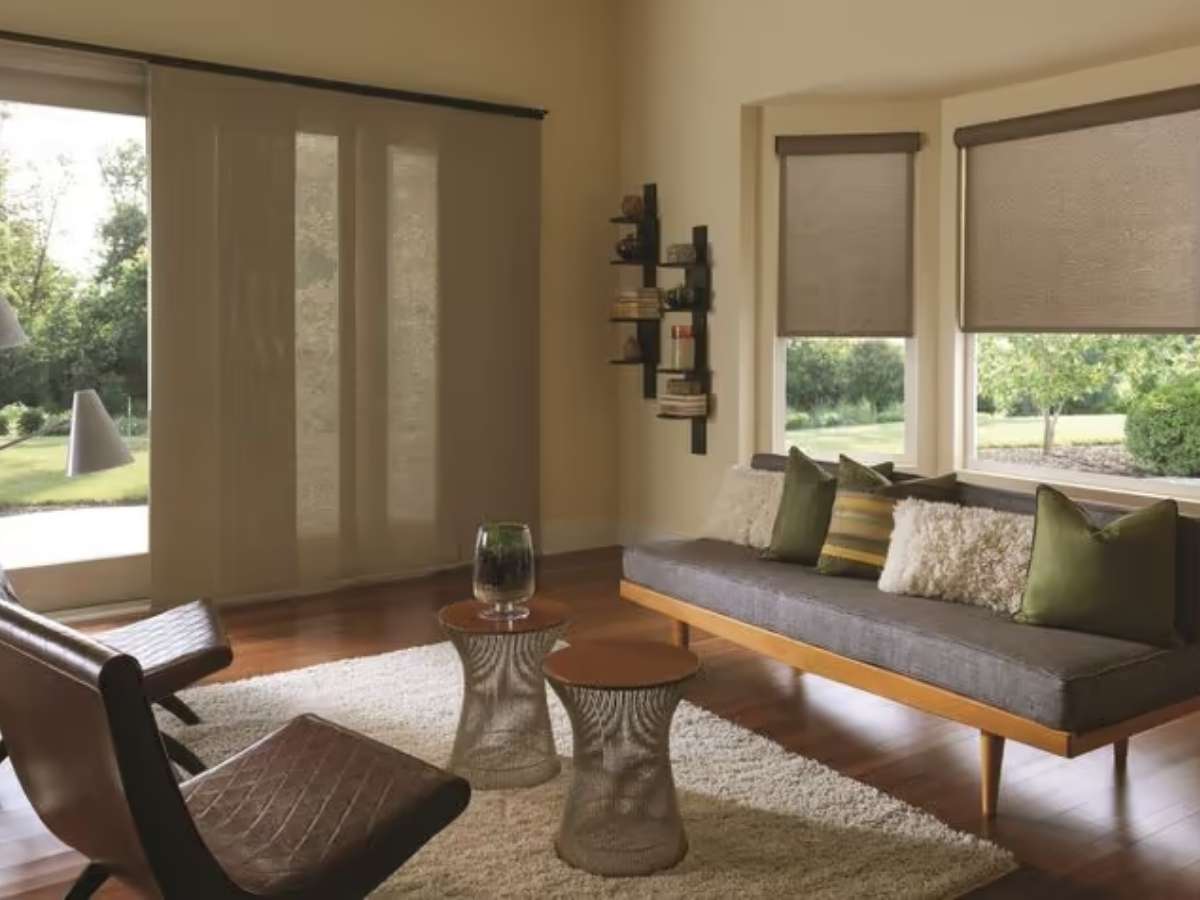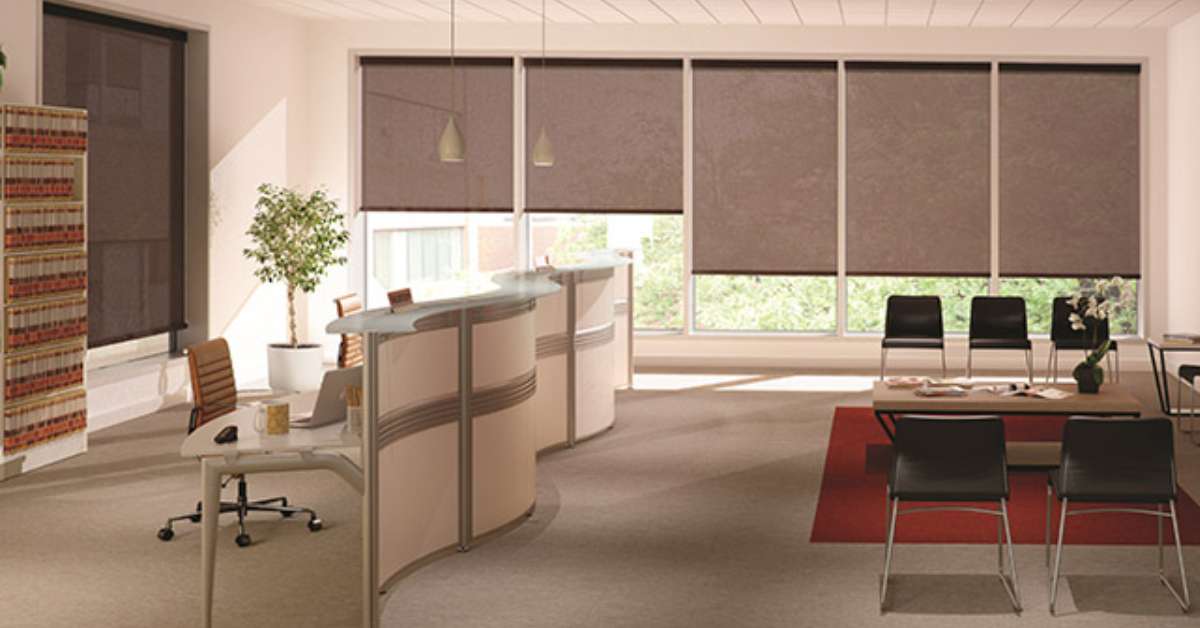Reducing overhead costs while creating a comfortable, productive environment for employees are key goals for every business. Installing solar shades in your commercial space is an impactful way to achieve both objectives. As an eco-friendly solution that saves energy, solar shades are a smart investment for commercial buildings.
What Are Solar Shades, and How Do They Work?

Solar shades, or sunscreens, are window coverings designed to manage heat gain and glare from sunlight. Available in many styles, solar shades typically consist of horizontal or vertical louvers made of fabric, or a continuous sheet of aluminum, wood, or other materials. The louvers are spaced and angled to block and filter direct sunlight.
Solar shades work by:
- Deflecting and reflecting solar radiation before it strikes the glass surface
- Absorbing and dissipating heat within the shade louvers
- Allowing filtered, diffused daylight to enter
Benefits of Solar Shades
Controlling Heat Gain and Glare
Excess solar heat and glare through windows can make indoor spaces uncomfortable. Solar shades significantly reduce heat gain and glare by blocking and diffusing sunlight. This enhances comfort and allows for reduced air conditioning usage.
Lower Energy Bills
Solar shades are a proven technology for decreasing energy consumption in commercial buildings. A major study found solar shades can lower peak cooling demand by 20-25%. By keeping out solar heat, solar shades directly reduce air conditioning costs. In winter, natural lighting and passive solar heat can also decrease lighting and heating expenses.
Improve Workplace Comfort and Productivity
Solar shades create a more visually comfortable workplace by limiting glare and brightness. Screen visibility improves, and workers experience less eye strain and distraction. Research shows employees are more productive in environments with controlled day lighting and appropriate brightness balances.
Enhanced Sustainability
Solar shades help buildings reduce their environmental impact. By decreasing energy demand, solar shades lower carbon emissions associated with power generation. They can play a key role in green building certification programs like LEED. Solar shades also contain recyclable materials.
Rapid Payback on Investment
With expected payback periods of 2-6 years, solar shades quickly pay for themselves in energy savings. Actual payback depends on several factors, including climate, energy costs, runtime, and the specifics of the shades. With 10-15 years of lifespans, energy savings continue accumulating after the initial ROI.
Ideal Applications for Commercial Solar Shades
While all commercial spaces can benefit from solar shades, they are especially impactful for:
- Buildings with expansive glass façades or skylights
- Spaces with screens, monitors, whiteboards, and displays that require glare and brightness control
- Healthcare facilities where patient and staff comfort is crucial
- Schools and offices where productivity would improve with better lighting conditions
- Retail stores and restaurants that would attract more customers with solar control
Project Considerations
To maximize benefits, solar shades should be customized for each unique situation. Important factors to consider include:
- Climate conditions like solar intensity and angles
- Window and skylight specifications and locations
- Interior layout, lighting, and activities
- Hours of building occupancy and usage
- HVAC system parameters
- Energy costs and savings goals
- Aesthetic preferences
Solar shades can optimally control heat and glare with proper design and placement while admitting beneficial diffused daylight. Both interior and exterior shade options are available.
On the other hand, exterior shades block solar radiation before it strikes the glass and becomes a source of radiant indoor heat. Well-designed systems block up to 95% of solar heat gain.
Interior shades provide additional control of heat, glare, and daylight. Manual, motorized, and automated systems are available to adjust throughout daytime hours.
Frequently Asked Questions on Solar Shades
Here are answers to some frequently asked questions about commercial solar shades:
Look for highly reflective surfaces, tightly woven fabrics, durable materials, and excellent heat and light-blocking abilities. Systems with adjustability or automation provide the highest level of control.
Commercial solar shade costs range from $25-$50 per square foot installed. System costs depend on shade specifications, accessories, motorization, and overall area covered.
Solar shades are low maintenance. Occasional dusting or cleaning is required. Fabric shades may need periodic recoating. Parts and motors may eventually need replacement.
Look for highly reflective surfaces, tightly woven fabrics, durable materials, and excellent heat and light-blocking abilities. Systems with adjustability or automation provide the highest level of control.
Solar shades are low maintenance. Occasional dusting or cleaning is required. Fabric shades may need periodic recoating. Parts and motors may eventually need replacement.
Solar Shades – A Smart Investment for Your Business
Solar shades offer one of the fastest returns on investment of any sustainability upgrade. Contact Made In The Shade Eastern Shore today to discuss custom solar shading solutions for your commercial space. We will design commercial solar shades to maximize your energy savings, comfort, productivity, and green space goals. Reduce bills, enhance your workspace, and show your commitment to the environment with solar shades.














